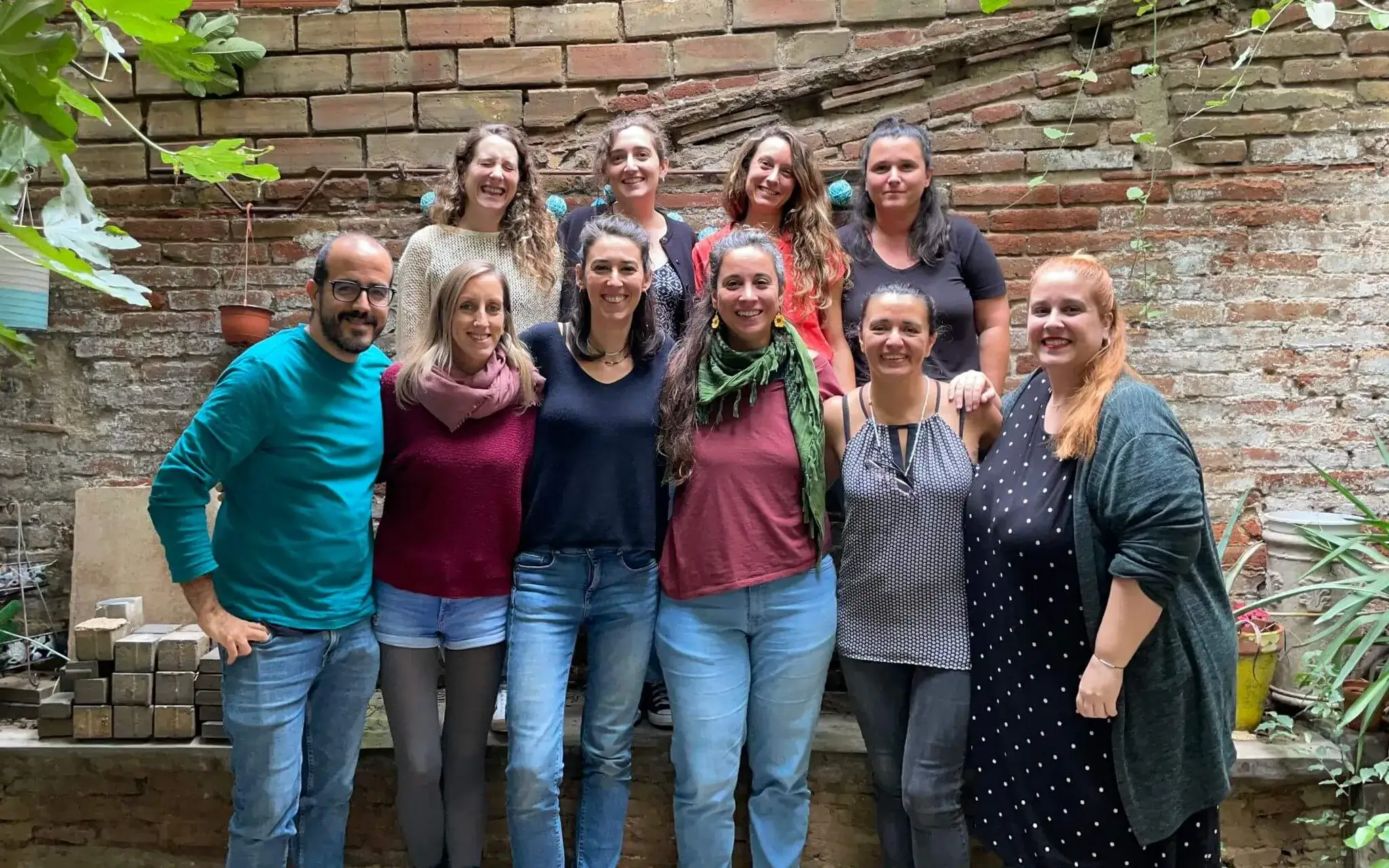
Cultural democracy for active aging.
Close your eyes and imagine an elderly person. What are they doing? How are they dressed? What does their hair look like? How do they move? When we conduct this exercise with children in our workshops, most responses describe someone who moves with difficulty, uses a cane, and has white hair. Yet when we ask these same children about their grandparents, the stereotype falls apart: the diversity of elderly people is immense. In most cases, they are active individuals, with varied appearances, personalities, and schedules full of activities.
This mismatch between perception and reality shapes the collective imaginary, influencing how we understand and construct the world. This vision is constantly reinforced by representations in media, advertising, and cultural manifestations, which both reflect and shape our society.
The system we live in privileges what it deems powerful, functional, productive, and profitable, while marginalizing and discriminating against those who don't fit this mold: children and youth, women and the LGTBIQ+ community, workers, migrants, racialized individuals, and elderly people. Ageism and the lack of a culture of aging in our society foster the exclusion of older people from public and social life. This, in turn, impoverishes the cultural, reflective, and creative activities of these individuals. Simultaneously, it represents a loss for society as a whole, depriving it of the perspectives, experiences, knowledge, skills, and contributions of this segment of the population.
The stereotypes associated with older people limit expectations of what they can do and achieve. Active aging seeks to break these preconceived notions and promote a full and participatory life during this stage. In this sense, access to art, culture, and public spaces becomes a source of well-being and must be recognized as a right. However, as with other marginalized groups, it is not enough to make culture more accessible to older people; their right to educate themselves, develop a critical perspective, and participate in cultural debate must also be guaranteed. Moreover, it is essential to enable elderly people to self-organize collectively and become creators of culture. This allows for representations that stem from their own perspectives, transcending those typically produced by dominant, ageist narratives.
Active aging aims to improve the quality of life as we grow older. At Trama, we align with this paradigm by focusing on the recognition, contributions, and participation of older people in the community, cultural, and political life of their territories. This includes cultural visits, community processes for recovering oral memory, collective creation projects, and activities that enrich perspectives on aging. It is crucial to generate activities and cultural projects that highlight and advocate for older adults as active and creative agents in building a fairer society for all. This effort is grounded in transmitting their knowledge while building networks of support among participants.
We believe it is particularly valuable to foster processes of oral memory recovery, capturing the experiences, reflections, and stories of older adults. Given their long life journeys, they can provide unique viewpoints and connect with other periods of crisis they may have lived through. Without the contributions of older people, society loses knowledge, experiences, spaces, and the oral memory of what came before us. We lose a past that is still present because it shapes us. Caring for the past helps us live fully in the present and build a better future. Memory belongs to everyone: to the elderly, who have cultivated it; and to the youth, who need its fruits.
We began this article by stating that cultural representations often ignore and discriminate against older people. They are frequently relegated to minor roles, often with a negative slant that feeds stereotypes. At the same time, art and culture are also transformative agents, capable of fostering a more just and equitable society that celebrates diversity. Real representation is urgently needed because culture acts as a mirror of our way of life and influences how we interpret reality. What is not represented does not exist. Hence the importance of transforming imaginaries and breaking down prejudices.
Without the participation, recognition, visibility, and interaction of older people, we will not overcome ageism or change societal imaginaries. This cultural, social, and political engagement is not only vital for active aging but is also necessary and beneficial for society as a whole.



Add new comment